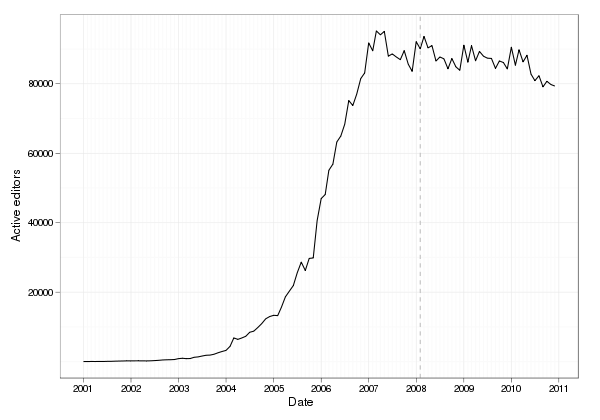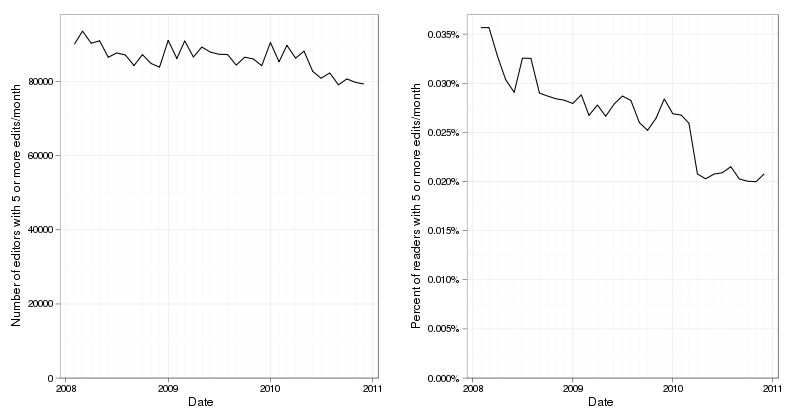
(This post contains some discussion of rape and sexual assault but does not go into any specifics)
There was a brief controversy at Linux.conf.au back in 2011. The final keynote speaker gave a compelling presentation on online privacy, including some slides containing sexualised imagery. This was against the terms of the conference policies, and resulted in an apology from the conference organisers and the speaker. The situation was unfortunate but well handled, and that should have been the end of it.
Afterwards, there was some pushback on the conference mailing list. Concerns were raised about the policy being overly restrictive and the potential for it to be used to stifle speech that influential groups disagreed with. I don't agree with these arguments, but discussion of why policies have been implemented is completely natural and provides an opportunity for a community to determine what its expected standards are.
And then Ted Ts'o
effectively called rape victims liars[1]. At first I assumed that this was just some sort of horrific failure to understand the implications of what he was saying, so I emailed him to check. The
reply I got drew a pretty clear distinction between the case of a drunk college student raping another drunk college student in their room and the case of knifepoint rape in a dark park. You know, the difference between accidental rape and rape rape. The difference between the one any of us might have done and the one that only bad people do. Legitimate rape and the "rape" that those feminists talk about. The distinction that lets rapists convince themselves that they didn't really rape anyone because they weren't holding a knife at the time.
Ted Ts'o argues that only a small percentage of rape really counts as what people think of as rape. Ted Ts'o is a rape apologist.
There's an ongoing scandal in the UK at the moment. A well known DJ, Jimmy Savile, died last year. He grew up in a working class family, but through hard work and natural talent was one of the most significant figures in promoting pop music in the UK in the 50s and 60s, and worked in various parts of the BBC for the best part of 30 years. He spent significant amounts of time raising money for charity, and it's estimated that he raised over 40 million for various causes. Since his death, around 300 people have accused him of sexually abusing them. The BBC is desperately trying to explain why it cancelled an expose shortly before it aired. Multiple people who worked there at the time claim that everyone knew he was involved in indecent activities, but saying anything would risk both their career and the charities that depended on his fundraising. Nobody said anything, and he was allegedly free to continue his abuse.
Ted Ts'o is a significant figure in the Linux kernel community. He has expressed abhorrent beliefs that damage that community. Condemnation was limited to a mailing list with limited readership, meaning, effectively, that nobody said anything. Last week the Ada Initiative published a blog post
pointing out the damage that did, and I realised that my effective silence was not only helping to alienate 50% of the population from involving themselves with Linux, it was also implicitly supporting my community leadership. I was giving the impression that I was basically fine with our community leaders telling people that it wasn't really rape if you were both drunk enough. I was increasing the chances of members of our community being sexually assaulted. Silence is endorsement. Saying nothing is not ok.
In the absence of an apology and explanation from Ted, I'll be interacting with him to the bare minimum that I'm compelled to as a result of my job. I won't be attending any Linux Foundation events he's involved in organising. If I'm running any events, I won't be inviting him. At a time when we're finally making progress in making our community more open and supportive, we don't need leaders who undermine that work. Support
organisations who encourage that progress, not the people who help drag us back.
Footnotes
[1]The original archive has vanished. I've put up a copy of the relevant thread
here. Throughout, Ted states that he's actually arguing against the idea that women need to be frightened of sexual assault, and not against the definition of rape. Except saying things like
This one does a pretty good job of taking apart the Koss / Ms. Magazine study, which is the source for the "1 in 4" number. For example, it points out that over half of those cases were ones where undergraduates were plied with alcohol, and did not otherwise involve using physical force or other forms of coercion
is difficult to read in any way other than "Half of the people you're counting as having been raped haven't really been raped", and favourably referring to an article that asserts that the rate of false rape reports is probably close to 50% is pretty strong support for the idea that many rape victims are liars.
(Update 2012/10/30: Adam Williamson suggests in
this comment that
this mail is a better example of Ted's behaviour - there's some explicit victim blaming and a lot of "Is that rape" questioning with the obvious implication that the answer should be "no". Ted Ts'o is a victim blaming rape apologist.)
(Update 2012/11/05: It's been suggested that I haven't been sufficiently clear about which of Ted's statements justify my claims. So, here we go.
In
this mail, Ted links to and endorses
this article. He explicitly links to it because of its treatment of rape statistics. Quoting directly from that article:
the rate of false reports is at least 9 percent and probably closer to 50 percent
Ted explicitly endorses an article that claims that a significant percentage of reported rapes are false. The study that generated that figure is held in poor regard by other researchers in the field - Australian police figures indicate that
2.1% of rape accusations were classified as false. Ted asserts that he was trying to argue against poor use of statistics, so it's a fair assumption that he agrees with the alternative statistics that he's citing. Ted believes that many rape victims are making false accusations. Ted believes that many rape victims are liars.
Again in
this mail, Ted argues against a claimed figure that 1 in 4 women have been sexually assaulted. One of his arguments is that
Also found in the Koss study, although not widely reported, was the statistic that of the women whom she classified as being raped (although 73% refused to self-classify the event as rape), 46% of them had subsequent sex with the reported assailant
. Ted disagrees with a statistic because some rape victims subsequently have sex with the reported assailant. This means that Ted believes that this indicates that they were not really raped. Ted is a rape apologist.)

comments
 YNAB
On the advice of many friends, I tried to use You Need A
Budget. I gave it a seriously long, proper
evaluation: over a year. But I just couldn't get it to work for me. I don't
want to try and explain why. To be honest, those same friends who advocated for
it fairly strongly, also gave me a pretty hard time for giving up on it!
Despite it not clicking for me, there are a few concepts from YNAB that I quite
like:
YNAB
On the advice of many friends, I tried to use You Need A
Budget. I gave it a seriously long, proper
evaluation: over a year. But I just couldn't get it to work for me. I don't
want to try and explain why. To be honest, those same friends who advocated for
it fairly strongly, also gave me a pretty hard time for giving up on it!
Despite it not clicking for me, there are a few concepts from YNAB that I quite
like:
 Back in 2010, inspired by
Back in 2010, inspired by 
 Before I start a short listing of (some of) the stuff I did during Debconf 14, I d like to say how much I enjoyed everyone there. You guys (all of you, really!) are just awesome, and it s always a real pleasure to see you all, each time.
Anyway, here s a bits of the stuff I did.
1/ packaging of Google Cloud Engine client tools.
Thanks to the presence of Eric and Jimmy, I was able to finish the work I started at Debconf 13 last year. All python modules are packaged and uploaded. Only the final client (the gcloud command line utility) isn t uploaded, even though it s already packaged. The reason is that this client downloads stuff from internet, so I need to get the full, bundled, version of it, to avoid this. Eric gave me the link, I just didn t have time to finish it yet. Though the (unfinished) package is already in the Git in Alioth.
2/ Tasksel talks
We discussed improvements in Tasksel both during the conference, and later (in front of beers ). I was able to add a custom task on a modified version of the Tasksel package for my own use. I volunteered myself for adding a more task option in Tasksel for Jessie+1 because I really would like to see this feature, and nobody raised hand, but honestly, I have no idea how to do it, and therefore, I m not sure I ll be able to do so. We ll see Anyway, before this happen, we must make sure that we know what kind of tasks we want in this more tasks screen, otherwise it d be useless work for nothing. Therefore, I have setup a
Before I start a short listing of (some of) the stuff I did during Debconf 14, I d like to say how much I enjoyed everyone there. You guys (all of you, really!) are just awesome, and it s always a real pleasure to see you all, each time.
Anyway, here s a bits of the stuff I did.
1/ packaging of Google Cloud Engine client tools.
Thanks to the presence of Eric and Jimmy, I was able to finish the work I started at Debconf 13 last year. All python modules are packaged and uploaded. Only the final client (the gcloud command line utility) isn t uploaded, even though it s already packaged. The reason is that this client downloads stuff from internet, so I need to get the full, bundled, version of it, to avoid this. Eric gave me the link, I just didn t have time to finish it yet. Though the (unfinished) package is already in the Git in Alioth.
2/ Tasksel talks
We discussed improvements in Tasksel both during the conference, and later (in front of beers ). I was able to add a custom task on a modified version of the Tasksel package for my own use. I volunteered myself for adding a more task option in Tasksel for Jessie+1 because I really would like to see this feature, and nobody raised hand, but honestly, I have no idea how to do it, and therefore, I m not sure I ll be able to do so. We ll see Anyway, before this happen, we must make sure that we know what kind of tasks we want in this more tasks screen, otherwise it d be useless work for nothing. Therefore, I have setup a  Big release notes since 1.0:
We ve got a new list
Big release notes since 1.0:
We ve got a new list  Before we begin, everyone should read up on hashtables and what open
addressing / closed hashing is. The context is lines 111 190 of
Before we begin, everyone should read up on hashtables and what open
addressing / closed hashing is. The context is lines 111 190 of  (This post contains some discussion of rape and sexual assault but does not go into any specifics)
(This post contains some discussion of rape and sexual assault but does not go into any specifics) You might find yourself at some moment when your git repository imported from CVS does not contain all the correct names and email addresses of the commits which were once in CVS but are now part of your project history in your git repo. Or you might do a cvsimport which missed a few authors.
You might find yourself at some moment when your git repository imported from CVS does not contain all the correct names and email addresses of the commits which were once in CVS but are now part of your project history in your git repo. Or you might do a cvsimport which missed a few authors. Every year I worry that DebConf might not be as good as I hope, or
not as good as previous years. Well, I've yet to be let down!
The
Every year I worry that DebConf might not be as good as I hope, or
not as good as previous years. Well, I've yet to be let down!
The  The
The  Last night was the kick-off concert in a series the
Last night was the kick-off concert in a series the
 It's been
It's been  Felipe Ortega, who has provided many of these statistics, has
Felipe Ortega, who has provided many of these statistics, has  Although the graphs above do not say anything directly about the most
active core contributors to Wikipedia, the fact that Wikipedia is
being maintained by a tiny -- and shrinking -- proportion of its
readership does mean that the idea behind Wikipedia is under threat.
Although none are as big as Wikipedia, there are lots of good
encyclopedias out there. The reason Wikipedia is different,
interesting, and important is because -- unlike all those others --
Wikipedia is the encyclopedia that anyone can edit. Wikipedia is
powerful because it allow its users to transcend their role as
consumers of the information they use to understand the
world. Wikipedia allows users to define the reference works that
define their understanding of the their environment and each other.
But 99.98% of the time, readers do not transcend that role. I think
that's a problem. Worse, that the number is growing.
The Wikimedia Foundation recently ran a major successful effort to
attract donations in its annual fundraiser. Jimmy Wales' smiling mug
is apparently enough in the way of motivation to get something like 1%
of its readers to donate money to support the project. I think that's
very good news. If the Wikimedia community can entice even half of
those people to contribute through an
Although the graphs above do not say anything directly about the most
active core contributors to Wikipedia, the fact that Wikipedia is
being maintained by a tiny -- and shrinking -- proportion of its
readership does mean that the idea behind Wikipedia is under threat.
Although none are as big as Wikipedia, there are lots of good
encyclopedias out there. The reason Wikipedia is different,
interesting, and important is because -- unlike all those others --
Wikipedia is the encyclopedia that anyone can edit. Wikipedia is
powerful because it allow its users to transcend their role as
consumers of the information they use to understand the
world. Wikipedia allows users to define the reference works that
define their understanding of the their environment and each other.
But 99.98% of the time, readers do not transcend that role. I think
that's a problem. Worse, that the number is growing.
The Wikimedia Foundation recently ran a major successful effort to
attract donations in its annual fundraiser. Jimmy Wales' smiling mug
is apparently enough in the way of motivation to get something like 1%
of its readers to donate money to support the project. I think that's
very good news. If the Wikimedia community can entice even half of
those people to contribute through an 